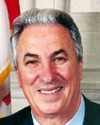Mr. Speaker, today marks the last day of Diabetes Awareness Month. Every eight minutes a Canadian is diagnosed with this disease.
It is a major cause of premature death, blindness, kidney disease and stroke. Diabetes is a leading cause of premature heart disease in women. Twice as many women will die from diabetes as from breast cancer.
Diabetes increases with age and affects more than 10% of Canadians over the age of 65.
In Kitchener and the surrounding area it is estimated that 5% of the population has diabetes.
This disease can hit anyone. It touches my own family.
I extend my best wishes and thanks to the Kitchener-Waterloo association in reaching its target of $30,000.
There is a renewed momentum and urgency in diabetic research that a cure will be found. Breakthroughs are being made.
With the efforts of the Canadian Diabetes Association and all Canadians we will find a cure for Megan Fitzpatrick and the 1.1 million diabetics in Canada.

















